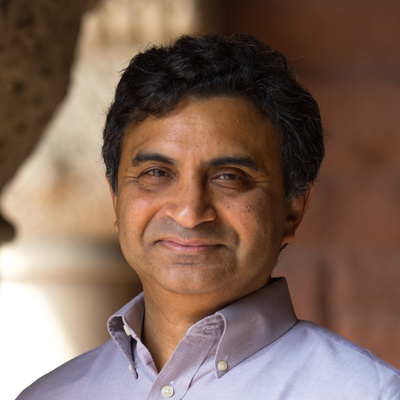Keynote Speakers
Keynote Speaker 1
Presenter : Prof. Bo An, Nanyang Technological University, Singapore

Title : From Algorithmic and RL-based to LLM-powered Agents
Abstract
In the early days of tackling AI problems involving complex cooperation and strategic interactions, algorithmic approaches were widely employed. Reinforcement learning has since proven effective in learning efficient policies for large-scale optimization problems that are beyond the scalability of traditional algorithmic approaches. Recently, the use of large language models (LLMs) as computational engines has given rise to a new paradigm: LLM-powered agents capable of addressing complex problems across various domains. This talk will explore our recent work within these three paradigms and offer insights into the development of scalable, efficient, and distributed artificial general intelligence.
Short bio
Bo An is a President’s Council Chair Professor in Computer Science, and Co-Director of Artificial Intelligence Research Institute (AI.R) at Nanyang Technological University, Singapore. He received the Ph.D degree in Computer Science from the University of Massachusetts, Amherst. His current research interests include artificial intelligence, multiagent systems, computational game theory, reinforcement learning, and optimization. His research results have been successfully applied to many domains including infrastructure security, sustainability and e-commerce. He has published over 150 referred papers at AAMAS, IJCAI, AAAI, ICLR, NeurIPS, ICML, AISTATS, ICAPS, KDD, UAI, EC, WWW, JAAMAS, and AIJ. Dr. An was the recipient of the 2010 IFAAMAS Victor Lesser Distinguished Dissertation Award, an Operational Excellence Award from the Commander, First Coast Guard District of the United States, the 2012 INFORMS Daniel H. Wagner Prize for Excellence in Operations Research Practice, 2018 Nanyang Research Award (Young Investigator), and 2022 Nanyang Research Award. His publications won the Best Innovative Application Paper Award at AAMAS’12, the Innovative Application Award at IAAI’16, and the best paper award at DAI’20. He was invited to give Early Career Spotlight talk at IJCAI’17. He led the team HogRider which won the 2017 Microsoft Collaborative AI Challenge. He was named to IEEE Intelligent Systems' "AI's 10 to Watch" list for 2018. He was PC Co-Chair of AAMAS’20 and General Co-Chair of AAMAS’23. He will be PC Chair of IJCAI’27. He is a member of the editorial board of JAIR and is the Associate Editor of AIJ, JAAMAS, IEEE Intelligent Systems, ACM TAAS, and ACM TIST. He was elected to the board of directors of IFAAMAS, senior member of AAAI, and Distinguished member of ACM.
Keynote Speaker 2
Presenter : Prof. Long Tran-Thanh, University of Warwick, UK

Title: What happens if LLM Agents strategically behave?
Abstract
The rapid advancement of large language model (LLM) based AI systems has been disruptive to many sectors of our lives, and soon they will act as autonomous agents on our behalf in dealing with complex real-world problems while interacting with other agents and humans. However, it is unclear that when multiple of these LLM agents interact with each other, how they would influence each other’s behaviour. This is especially true if they are programmed to be strategic (i.e., selfish, or malicious) on the behalf of their human owners/creators. These strategic behaviours, if not mitigated efficiently, will cause societal, financial, ethical, and safety disasters. In this talk, I will discuss a number of key research challenges and problems that need to be addressed to avoid such disasters. These include: (i) last round/last iterate convergence in non-cooperative multi-agent learning; (ii) efficient learning with limited verifications against strategic manipulators; and (iii) truthful machine learning. While it is still unknown how these challenges should be addressed in the multi-LLM-agent setting, I will demonstrate how this has been addressed within the multiagent research community for simpler agent models, drawing some intuitions for future work on LLM agents.
Short bio
Long is a Professor at the Department of Computer Science, University of Warwick, UK. He is currently the Director of Research of the department (Deputy-Head) and the university’s Chair of Digital Research Spotlight. Long has been doing active research in a number of key areas of Artificial Intelligence and multi-agent systems, mainly focusing on multi-armed bandits, game theory, and incentive engineering, and their applications to AI for Social Good. He has published more than 80 papers at peer-reviewed A* conferences in AI/ML (including AAAI, AAMAS, CVPR, IJCAI, NeurIPS) and journals (JAAMAS, AIJ), and have received a number of prestigious national/international awards, including 2 best paper honourable mention awards at top-tier AI conferences (AAAI, ECAI), 2 Best PhD Thesis Award Honourable Mentions (UK's BCS and Europe’s ECCAI/EurAI), and the co-recipient of the 2021 AIJ Prominent Paper Award (for one of the 2 most influential papers between 2014-2021 published at the Artificial Intelligence Journal). Long has also been actively involved in a number of community services, including being the local co-chair for AAMAS 2021, AAMAS 2023, KR 2021, KR 2024, and AAMAS 2027. He is an Associate Editor for JAAMAS, and a member of the Editorial Board for AIJ. Previously he was a member of the IFAAMAS Board of Directors between 2018-2024 and a Turing Fellow at the Alan Turing Institute, UK.
Keynote Speaker 3
Presenter : Prof. Sadao KUROHASHI, National Institute of Informatics/Kyoto University, Japan

Title : From Data Platforms to Knowledge Infrastructure
Abstract
Abstract:
Modern society is facing pressing issues, including environmental challenges, inequality, and regional conflicts. To resolve these complex societal problems, the concept of "open science" is essential, as emphasized at last year’s G7 meeting. In Japan, starting in 2025, all scientific papers resulting from publicly funded research, along with the associated data, will be required to be immediately accessible through open access.
The National Institute of Informatics (NII) has been at the forefront of advancing Japan’s academic information infrastructure for many years. In 2017, NII embarked on the development of the NII Research Data Cloud―a platform for the publication, discovery, and management of academic information―which became operational in 2021. By 2022, the project evolved into a research data ecosystem, built in collaboration with numerous universities and research institutions. This initiative aims to create a comprehensive environment where papers, data, and computational resources are readily accessible across all fields of research.
Recognizing the significant impact of generative AI on society and the need for a hub in Japan where large-scale language models (LLMs) can be developed and studied, NII spearheaded the formation of the LLM-jp study group in May 2023. The group, founded on principles of openness, began with approximately 30 researchers specializing in natural language processing and has since grown to over 1,800 participants from industry, government, and academia.
In April 2024, NII further advanced this initiative by establishing the LLM R&D Center. By September 2024, the center had developed and released the world’s largest fully open LLM, featuring 172 billion parameters―on a scale similar to GPT-3.5. The center's ongoing work also focuses on ensuring the reliability and transparency of these models.
To address the complex societal challenges mentioned above, it is crucial not only to deepen academic research but also to foster collaboration across various disciplines, creating new cross-disciplinary knowledge. LLMs can play a pivotal role in these processes by interpreting data, interconnecting and systematizing knowledge, and laying the groundwork for a robust knowledge infrastructure.
Short bio
Sadao Kurohashi received a PhD in Electrical Engineering from Kyoto University in 1994. He is currently the Director-General of the National Institute of Informatics, Japan, and a Specially Appointed Professor at the Graduate School of Informatics at Kyoto University. His research interests include natural language processing, knowledge infrastructure, and open science. He received the 10th and 20th anniversary best paper awards from the Journal of Natural Language Processing in 2004 and 2014, respectively, the 2009 IBM Faculty Award, the 2010 NTT DOCOMO Mobile Science Award, and the 2017 Commendation for Science and Technology by the Minister of Education.
Keynote Speaker 4
Presenter : Prof. Milind Tambe, Harvard University, USA

Title : Foundation Models: Accelerating AI for Social Impact and Resource Optimization
Abstract:For nearly two decades, my team’s work on AI for social impact (AI4SI) has focused on optimizing limited resources in public health, conservation, public safety, and other critical areas. I will highlight recent results from our work in India on using bandit algorithms to improve effectiveness of the world’s two largest mobile health programs for maternal and child care that have served millions of beneficiaries, and previous work on influence maximization for HIV prevention among youth experiencing homelessness in Los Angeles. Deploying end-to-end AI4SI systems pipeline requires us to work with non-profits or government agencies repeating three steps of understanding their resource allocation challenges, building a tailored model and testing in the field. I'll explore how we can leverage advancements in foundation models and LLMs to accelerate this process. I'll share initial results on building such accelerators that in the future may help rapidly develop and deploy AI4SI solutions.
Short bio
Milind Tambe is Gordon McKay Professor of Computer Science and Director of Center for Research on Computation and Society at Harvard University; concurrently, he is also Principal Scientist and Director for "AI for Social Good" at Google Deepmind. Prof. Tambe and his team have developed pioneering AI systems that deliver real-world impact in public health (e.g., maternal and child health), public safety, and wildlife conservation. He is recipient of the AAAI Award for Artificial Intelligence for the Benefit of Humanity, AAAI Feigenbaum Prize, IJCAI John McCarthy Award, AAAI Robert S. Engelmore Memorial Lecture Award, AAMAS ACM Autonomous Agents Research Award, INFORMS Wagner prize for excellence in Operations Research practice, Military Operations Research Society Rist Prize, Columbus Fellowship Foundation Homeland security award and commendations and certificates of appreciation from the US Coast Guard, the Federal Air Marshals Service and airport police at the city of Los Angeles. He is a fellow of AAAI and ACM.
Keynote Speaker 5
Presenter : Prof. Noa Garcia, Osaka University, Japan
Title : Social Stereotypes in Generative Models
Abstract:Generating images from textual descriptions requires the generative model to make implicit assumptions about the output scene that are not explicitly instructed in the input prompt. These assumptions can reinforce unfair stereotypes related to gender, race, or socioeconomic status. However, measuring and quantifying these social biases in generated images is a big challenge. In this talk, we will explore methods for measuring gender bias in text-to-image models, particularly Stable Diffusion, and discuss how the generated images, when used to train future computer vision models, affect bias in downstream tasks.
Short bio
Noa Garcia is an Associate Professor at the Institute for Advanced Co-Creation Studies, Osaka University, Japan. Originally from Barcelona, she moved to Japan in 2018, first as a postdoctoral researcher and then as a specially-appointed assistant professor at the Institute for Datability Science. She completed her Ph.D in multimodal retrieval and instance-level recognition at Aston University, United Kingdom, after earning her degree in Telecommunications Engineering from Universitat Politècnica de Catalunya, Barcelona. Her current research interests lie at the intersection of computer vision, natural language processing, fairness, and art. She is an active member of the computer vision community, having co-organized several workshops and international events, and regularly publishes at conferences such as CVPR, ICCV, ECCV, or NeurIPS.